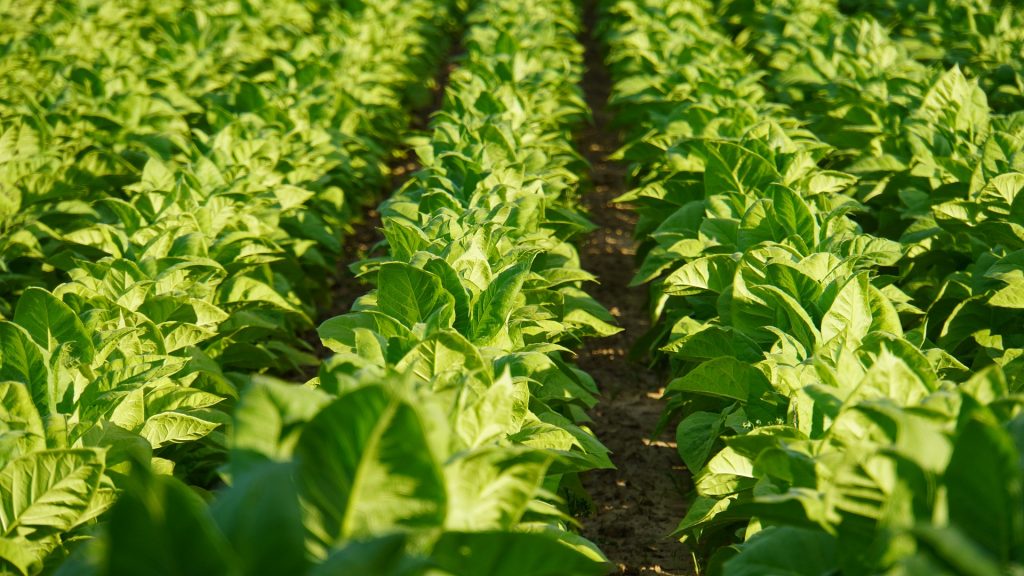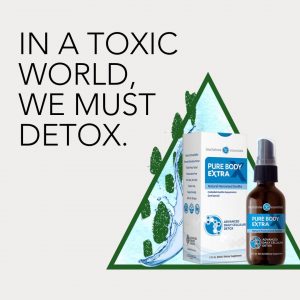by Fed Up Texas Chick, The Tenpenny Report:

We have Pfizer, Moderna, AstraZeneca and Johnson & Johnson vaccines for COVID-19. But clearly we need more, which is why researchers at the Quebec biotechnology company Medicago have been working on another first: a plant-based COVID-19 vaccine.
Medicago teamed with pharma giant GlaxoSmithKline (GSK) to develop the plant-based jab. The vaccine uses a relative of the tobacco plant, Nicotiana benthamiana. This species is used widely in pharmaceutical development because a high number of viruses can successfully infect the plant. In other words, the plant is very susceptible to infections.
TRUTH LIVES on at https://sgtreport.tv/
This option is two doses given 21 days apart. Medicago’s phase 2 clinical trials in the US, UK and Canada looked promising, touting high efficacy rates (we’ve heard this before) and stellar production of a 10x antibody response after receiving it. FDA granted Fast Track designation. Health Canada approved the shot, called COVIFENZ®, in March 2022, even before conclusion of the necessary trials. The Government of Canada had a contract with Medicago to supply the COVID-19 vaccine.
Everything seemed on track, but in February 2023, Medicago shut down. Parent group Mitsubishi Chemical Group blamed the shutdown on significant changes to the vaccine market, stating that “following a comprehensive analysis of the current global demand” the group decided to discontinue marketing the product. Translation: no one is buying what you are selling. This is interesting because Medicago’s lead product was a quadrivalent influenza vaccine (QIV). Large shareholders, one of which is cigarette manufacturer Philip Morris International, were less than pleased. Canadian taxpayers lost too, because the Canadian government invested $173 million in 2020 to help the company develop the product. Ottawa signed up to buy 20 million doses with an option for 56 million more.
The World Health Organization (WHO) put a major dent in Medicago’s plans. By not granting emergency use to COVIFENZ®, WHO kept the jab out of the COVID-19 Vaccines Global Access (COVAX) program, a global vaccine-sharing initiative. Parent company Mitsubishi Chemical Group stated that it was no longer viable to continue to invest in the commercialization of Medicago’s products.
When it was approved, studies of Covifenz found the two-dose shot’s overall efficacy rate against all virus variants studied was 71 per cent, with a higher efficacy rate of 75 per cent against COVID-19 infections from the delta variant.
 How They Work
How They Work
What is a plant-based vaccine? This concoction uses a virus-like particle (VLP) mixture. VLPs resemble viruses but don’t contain any genetic material from the virus, so are noninfectious. The vaccine contains recombinant spike (S) glycoprotein expressed as virus-like particles (VLPs). GSK contributed its pandemic adjuvant. This vaccine has to be stored between a 2°C to 8°C temperature range.
Scientists choose a specific genetic sequence for a particular protein. The genetic sequence is then introduced into a bacterial species Agrobacterium tumefaciens which can transfer its genetic material only to plants like Nicotiana benthamiana. The nicotiana plant is dipped in the modified Agrobacterium. Once the plant soaks it up, the desired genetic material is transferred into the leaves which produce the recombinant product for about eight days. After that, leaves are harvested, the protein is extracted, and voila – a pharma-grade product is made.
For all vaccines, an antigen must be produced. The antigen is the molecule that stimulates the immune response, and for these vaccines, plants produce the antigen. The plant produces the VLPs. Medicago’s vaccine is very similar to how both the Astra Zeneca and Johnson & Johnson vaccines work. A bit of adenovirus DNA in inserted into the plant cell and spike proteins are produced. These proteins then form VLPs, an empty shell of COVID-19 – enough to elicit the immune response, but not enough to infect since the VLPs don’t contain any of the viral genetic information. The GSK adjuvant is an added boost to further stimulate the immune response. The mRNA vaccines only show the body the coronavirus spike protein, but Medicago’s shows the spike protein, the envelope protein and the M protein. Three proteins mean a more robust immune response.
When benefits of plant-based vaccines are outlined, they’re all about manufacturing and not about you. This vax is faster and cheaper to produce. It takes five weeks instead of five months. This is actually a statement from a Medicago company representative: “Once we understand how effective the plant-based COVID-19 vaccine is in real-world settings, they might be an option for people who need to mix-and-match vaccines.”
Read More @ TheTenpennyReport.com



